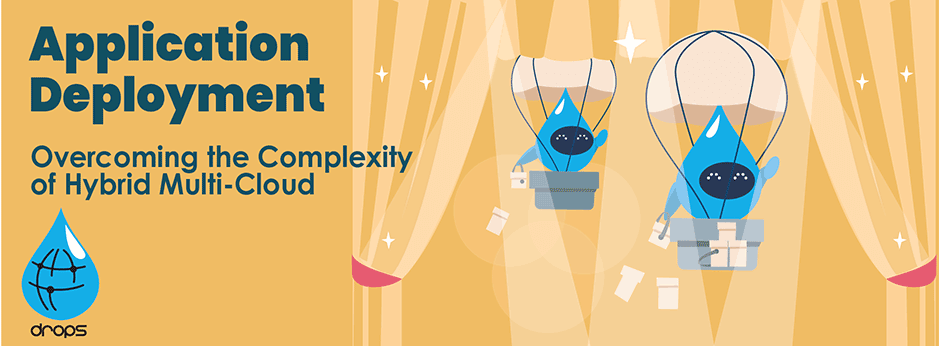
Deployment is the ultimate crucial step for all software application development; like actors, stagehands, and producers in a theatrical production, none of that hard work matters until the lights go down and the curtains go up. Did someone forget a line?
Software deployment occurs not only when software goes to final production and is available to users, but also at each of the key stages in the lifecycle of the application, including the point at which software is instantiated for development, test, and staging environments as well. In every case, a complex technological handoff must occur, involving configuration, validation, and many other critical tasks. When that handoff doesn’t go smoothly in pre-production, delays, bottlenecks, and security lapses may occur; when deployment goes wrong at production, users may experience poor service, application downtime, or worst of all, a security breach.
Types of Cloud Computing
The philosophies and tools employed for smooth application deployment depend on the platform architecture you choose for your software. Do you wish to run in a private, public, or hybrid cloud environment? Or perhaps another multi-cloud variation? Is your codebase private legacy, open source, or a mix? The answers to these questions will largely dictate what deployment strategy is best for you.
First, since today the digital world is by far web-based, software enterprises predominantly employ some form of cloud computing to deliver their products and services. Cloud computing comprises everything from servers and databases, to tools, applications, software and networking components necessary to ship products to the consumer. The cloud computing architectures prevalent today fall into several major categories: private, public, and hybrid- or multi-cloud.
Private clouds connect to the internet via a private network for a single customer. Private clouds may be built internally by the company itself, or built specifically for the customer by a private third party. Public clouds, on the other hand, are built by third parties who have a vast array of clients, and the architecture is not available to the businesses purchasing those services. Hybrid clouds any two or more discrete cloud computing centers, such as private-private, private-public, or public-public. A combination of multiple public clouds is also referred to as multi-cloud.
Hybrid and Multi-Clouds
In order to streamline application deployment, the industry is largely trending toward hybrid or multi-cloud solutions, as doing so affords some of the best of all worlds and also makes it possible to modernize legacy platforms. Primary advantages include being able to balance stability and growth, while also making available a greater menu of public cloud services and incorporating additional security layers.
While a hybrid or multi-cloud solution may offer the most advantages, it can also be host to a number of significantly complex challenges. If intending to migrate from a private or public cloud to a new hybrid cloud, you may be faced with a number of time and resource-heavy tasks, and differences in cloud stack technologies may also pose difficulties. Transition to a multi-cloud can add complexity to internal IT governance standards, as well as require some caution in ensuring compliance in regard to data storage.
Release Management
Release Management tools, however, can greatly simplify the process of hybrid- and multi-cloud migration and management. Systems like DROPS from ARCAD Software are able to manage and automate the release process across different languages and cloud environments, providing a “single source of truth” to stakeholders company-wide in regard to application lifecycle and deployment activity. DROPS is an easy-to-use system, secure and cloud independent, ensuring no vendor lock when it comes to public cloud providers. It offers instant rollback capabilities for 24/7 operation and a codeless graphical interface. The DROPS REST API makes it easily configurable and customizable. And now DROPS is now open source – to find out more, visit the ARCAD booth at Eclipsecon 2021 and request your personalized demo.

